October 2020 Newsletter
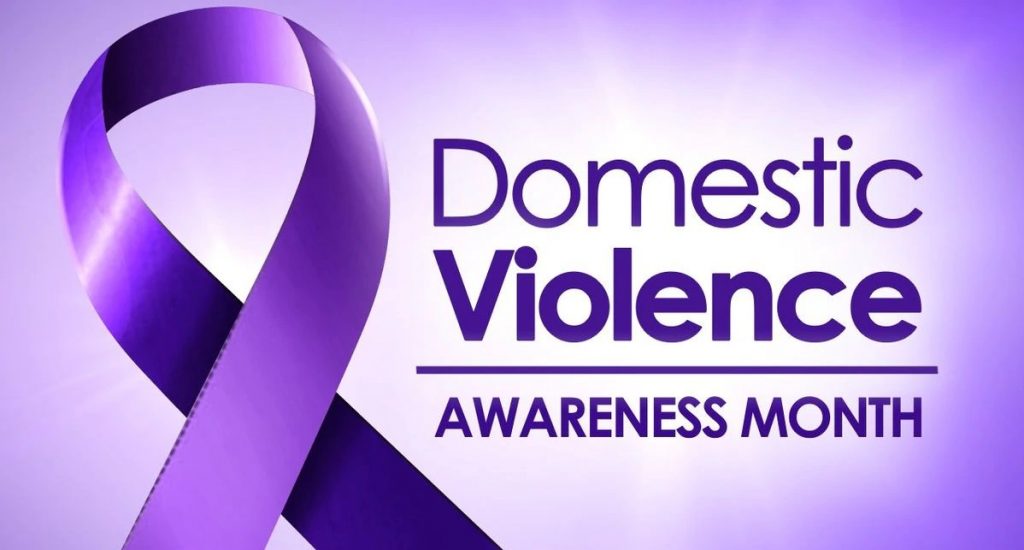
First observed in October 1981 as a national “Day of Unity,” Domestic Violence Awareness Month (DVAM) is held each October as a way to unite domestic violence advocates across the nation in their efforts to end domestic violence. Communities and advocacy organizations across the country connect with the public throughout the month to raise awareness about the signs of abuse and ways to stop it. It’s also an opportunity to uplift domestic violence survivors and provide resources to leaders and policy makers. Domestic violence affects millions, both women and men, of every race, religion, culture and status. It’s not just punches and black eyes. It’s yelling, humiliation, stalking, manipulation, coercion, threats and isolation. It’s stealing a paycheck, keeping tabs online, non-stop texting, constant use of the silent treatment, or calling someone stupid so often they believe it.
This year has been particularly difficult for many people. Countless challenges, including a global pandemic, have made it extremely difficult for victims to physically escape their abusers or even call for help. Social distancing precautions made for fewer vacancies at shelters and limited available resources and services available to victims. However, advocates for domestic violence victims have found creative ways to continue providing the help that these survivors desperately need.*
MCADV has been working diligently to be more visible and bring domestic violence to the forefront of the conversation. We are working closely with advocates and policy makers, providing them with resources and tools needed to help in the fight against domestic violence. MCADV has hosted multiple domestic violence training sessions, educating participants on issues such as domestic violence law, current policies, and understanding advocacy.
On average, nearly 20 people per minute are physically abused by an intimate partner in the United States.* If you or someone you know is in a domestic violence situation, there are resources available to provide help. Advocates and organizations are ready to provide assistance needed to help you move from victim to survivor. Domestic Violence Awareness Month provides an opportunity for all to take a stand to support survivors and speak out against domestic violence.
*During Domestic Violence Awareness Month, Offer a Resource to Somebody in Need of Help
Helpful Resources
The National Domestic Violence Hotline
National Network to End Domestic Violence (NNEDV)
National Resource Center on Domestic Violence
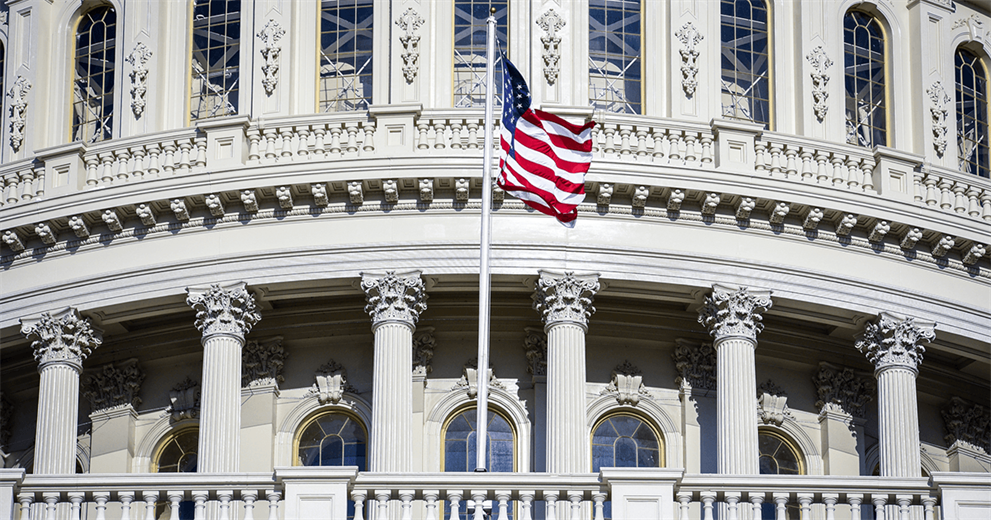
Federal Advocacy Leads to COVID-19 Relief Package Victory
In early June, MCADV partnered with the National Network to End Domestic Violence for Virtual Advocacy Day with Congressional Leaders. MCADV staff held conversations with congressional staff discussing the importance of providing additional funding and resources to victims and survivors of domestic violence. One of the few talking points included a major federal funding fix on the Victims of Crime Act. On Sept 28th, the U.S. House of Representatives released a smaller COVID-19 relief package, about $1 trillion less than the $3 trillion House passed HEROES Act (H.R. 6800). This new package maintained and even strengthened investments in programs that address gender-based violence, over what was included in the original HEROES Act. Although this is not the final Covid-19 relief package, it is very exciting to see the U.S. House keep survivors, victims and advocates in mind.
Here’s what the Relief Packages includes:
- Victim Of Crimes Act (VOCA) deposits fix – Included in Legislation; Advocates requested a grant matching fix and amendments to the deposit process used to funnel monies into this fund.
- Family Violence Prevention and Services Act (FVPSA) – $100 million ($2 million for National DV Hotline); Advocates’ initial request was $200 million to provide additional resources.
- Violence Against Women Act (VAWA) programs – Funding Increased
- Sexual Assault Services Programs (SASP) – $100 million; Advocates’ initial request $50 million for rape crisis centers
- STOP formula grants – $100 million; Advocates’ initial request $222M to improve criminal justice and victim services.
- Tribal programs – $50 million
- Transitional Housing- $40 million; Advocates’ initial request $42M to bridge gap in emergency housing and permanent housing.
- Culturally Specific Services – $25 million
- Outreach to Underserved Communities – $25 million
- Rural- $20 million
- Families in the Justice System – $15 million
As news out of Washington seems to change regarding COVID-19 relief package negotiations, it may seem that negotiations are stalled at the moment. It is critical that supporters and advocates continue to let the Senate know just how strongly we support the provisions in the newly passed House HEROES Act. Share you support with your Congressional leaders on Twitter, Facebook & Instagram. Take a moment today to celebrate this amazing victory.
For more information email robin.jackson@mcadv.org or contact Policy and Systems Advocacy Coordinator Robin Jackson at 601-981-9196.
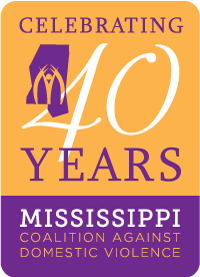
Click Here To Make a Donation to the 40for40 Campaign
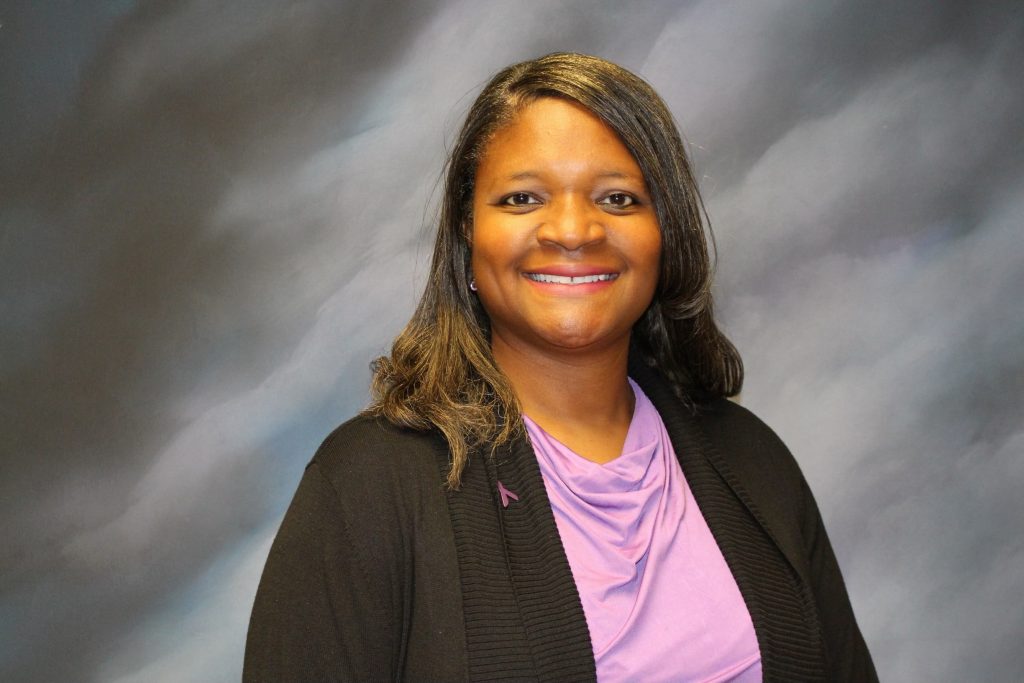
MCADV Welcomes New Special Projects Coordinator
In September 2020, MCADV welcomed Vera McFarlin Johnson as our Special Projects Coordinator. A native of Hattiesburg, Vera has spent over twenty years in the Metro Jackson area working in the nonprofit sector. Prior to joining the coalition staff, she worked for Make-A-Wish Mississippi, Parents for Public Schools of Jackson, and Girl Scouts of Greater Mississippi. When asked about beginning work with MCADV, her response was, “Whether it is work or personal, I want to know what I can do to help. I’ve been very fortunate to work in mission-driven (as opposed to profit-driven) environments. I’m looking forward to contributing to the great work of the coalition and shelter programs by focusing on the underserved communities throughout the state of Mississippi.” Vera’s strong work ethic and energetic personality is a great addition to the MCADV staff.
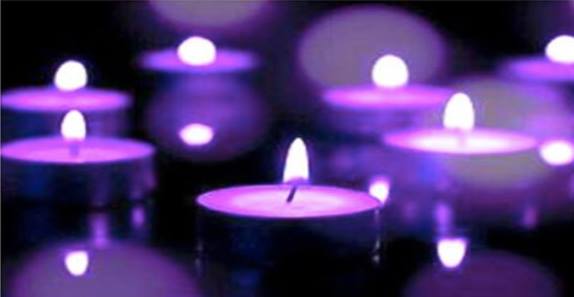
MCADV Hosts Annual Candlelight Vigil
As a part of National Domestic Violence Awareness Month, MCADV is hosting a candlelight vigil to honor the memory of domestic violence victims. This year, our candlelight vigil will be held at the Outlets of Mississippi on Tuesday, October 27th at 6pm. MCADV welcomes all to come out to honor the lives and memory of the individuals of our state lost to domestic violence. MCADV staff will be available to provide information and resources. For more information, call 601-981-9196 or email Communications Coordinator Tara Steverson at tara.steverson@mcadv.org.

Spiritual Abuse: You Have the Right NOT to Remain Silent
Maybe this is your cross to bear. You just need to be more submissive. Just pray about it. You know, God hates divorce. What did you do? All marriages hit tough spots. You need to rethink your expectations. It can’t be that bad. What about your children? You all need couples counseling. Has he hit you? Has she cheated? You’re not the first one this has happened to, and you won’t be the last—Deal with it.
Joni and Laird have been married for almost thirty years. Laird is a beloved leader in the community, president of a credit union, and sits on several prominent boards. Joni is a gifted speaker who never meets a stranger. She is known in the community for extending care and hospitality to strangers and friends alike. Additionally, she is a successful business woman. Laird is jealous, insecure, and controlling. Joni’s problem, he says, is that she doesn’t stay in her god-ordained place. He prides himself for never hitting her, but Joni confesses sometimes she would rather that he hit her than yelling, calling her names, spitting on her, and trying to choose her friends. Joni identifies Laird’s problem as unresolved childhood issues and never having learned how to “play well with others.” Fighting and withdrawing describe the cycle of their relationship. Four children, three grandchildren, and countless threats to divorce, they remain together. They attend one of the city’s largest churches and have turned to their spiritual leaders, looking for answers to heal their marriage. “You all are one of Davenport’s power couples,” their pastor told them, “Do you know what it would do to our congregation if you split up?” Joni was advised, “Fix him a good meal every now and then and rub his feet.” Laird was encouraged, “You know it’s hard to tame a woman. You all just need to pray.” WHAT?
One of the places where domestic violence is tolerated and sometimes even condoned is in spiritual spaces. For those with religious roots and foundations, the message is often confusing when it comes to domestic violence. It’s not unusual to hear a sermon or homily on the role of a wife. Occasionally, a message is shared on the role of the husband. What is noticeably absent, though, is how to prepare for and navigate through a tough marriage, how to deal with the issues that no one talks about and many people face.
Domestic violence thrives in silence, festering within the walls of our places of worship. Fear is often the muzzle causing an abused spouse not to reach out. He or she may be afraid of the consequences of exposure. They may fear for their lives, loss of financial support, the possibility of losing custody of their children or the uncertainty of how the children will deal with the restructuring of the family. In some cases, the victim may not realize that the misuse of religious texts and traditions is abuse and therefore, they believe that it is their “cross to bear.”
“Domestic violence is a serious moral and spiritual concern. It violates the dignity of human beings and the basic moral principles of all religious faith traditions…Religious traditions are often misinterpreted, particularly by abusers, to justify their abusive behaviors. Usually such support comes from citing selected passages from sacred scriptures or teachings of a particular religious community, or from arguing for the authority of traditional practices from the past that justify violence, especially against women…
“All of the world’s religious traditions, in their own way, call upon their adherents to be especially mindful of those individuals and groups who are without power and privilege, and who represent the most vulnerable within a society. Faith communities can play a significant role in providing support for victims of domestic violence and in holding abusers accountable.” (The New York State Office for the Prevention of Domestic Violence, Governor’s Office of Faith Based Community Development Services, in Cooperation with New York Theological Seminary, “Domestic Violence and the Faith: A Guideline for Faith Leaders.”) https://opdv.ny.gov/professionals/faith/guidelines.pdf
If you or someone you know is in a spiritually abusive relationship, please contact your local domestic violence shelter or call 1.800.799.7233 (SAFE). For more information about Domestic Violence, visit our website www.mcadv.org.
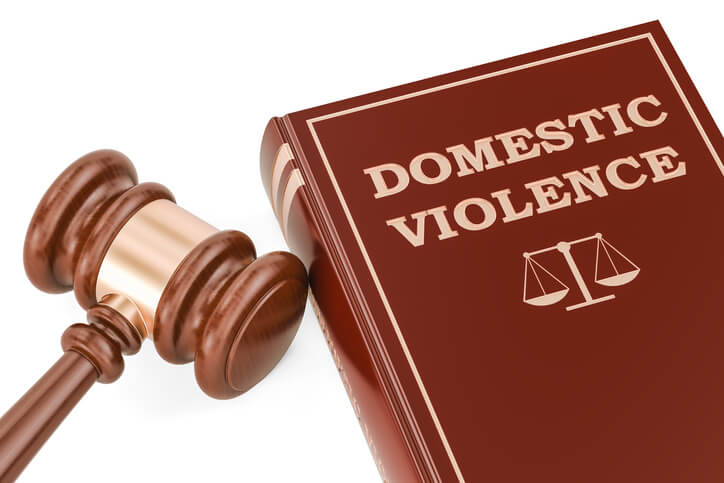
Simple versus Aggravated Domestic Violence
Picture this: Your significant other is physically abusive to you. You call the police, they show up, and they arrest them. You would probably wonder what they are charging them with. There are several possibilities. Those charges are: Simple domestic violence, simple domestic violence third, aggravated domestic violence, aggravated domestic violence third and fourth or subsequent domestic violence. A brief description of each charge is below.
For any domestic violence charge, a certain relationship between the abuser and victim is required. The relationships are:
- A current or former spouse of the defendant or a child of that person
- A person living as a spouse or who formerly lived as a spouse with the defendant or a child of that person
- A parent, grandparent, child, grandchild or someone similarly situated to the defendant
- A person who has a current or former dating relationship with the defendant
- A person with whom the defendant has had a biological or legally adopted child
Simple domestic violence is:
- The attempt to cause of purposely, knowingly or recklessly causes bodily injury to another
- Negligently causes bodily injury to another with a deadly weapon or other means likely to produce death or serious bodily harm
- Attempts by physical menace to place another in fear of imminent serious bodily harm
Simple domestic violence third is:
- A Felony
- Simple domestic violence by someone who has 2 prior convictions whether against the same or another victim
- Within 7 years
Aggravated domestic violence is:
- The attempt to cause serious bodily injury to another, or causes such injury purposely, knowingly or recklessly under circumstances manifesting extreme indifference to the value of human life
- The attempt to cause or purposely or knowingly causes bodily injury to another with a deadly weapon or other means likely to produce death or serious bodily harm
- Strangle or attempt to strangle
Aggravated domestic violence third is:
- Aggravated domestic violence by someone who has 2 prior convictions whether against the same or another victim
- Within 7 years
Fourth or subsequent domestic violence is:
- Any person who commits simple or aggravated domestic violence by someone who has at least 3 previous convictions whether against the same or different victims
- Any combination of simple or aggravated domestic violence
This publication was funded in whole or part through support from Grant No. 2019-DW-AX-0013, awarded by the Office on Violence Against Women, U.S. Department of Justice from the Violence Against Women Act Grant.
The opinions, findings, conclusions, and recommendations expressed in this publication are those of the authors and do not necessarily reflect the views of the U. S. Department of Justice.
